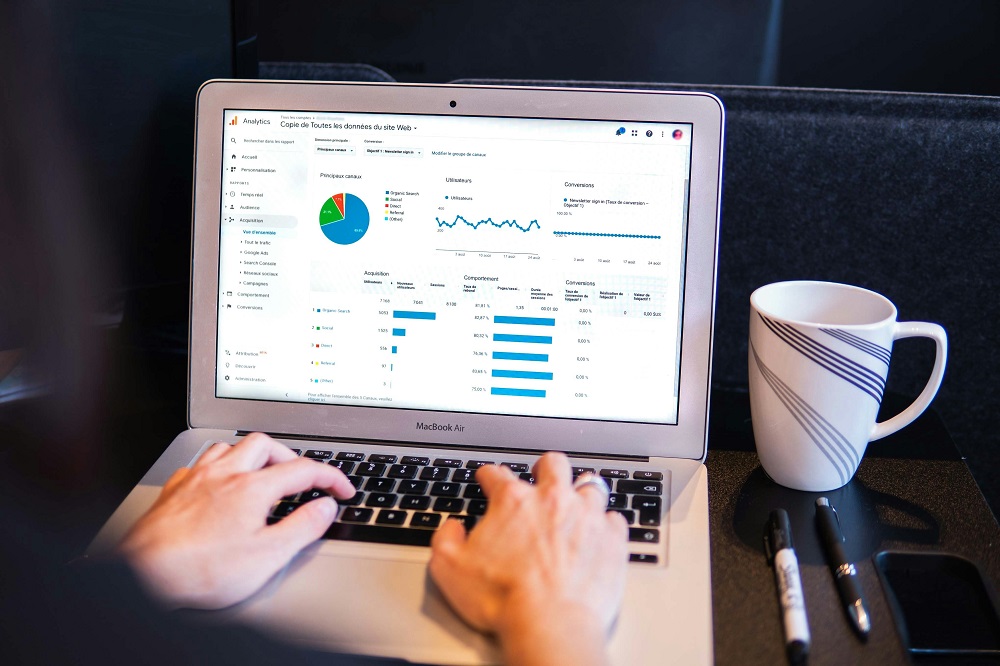Standardizing data operations ensures you can work with talented professionals worldwide, improve ease of use, and eliminate ambiguity from data semantics. Therefore, analysts, data quality inspectors, governance officers, and engineers study compliance requirements alongside industry bodies’ guidelines on effective data validation, protection, and transformation. This post will overview the importance and components of a data management framework and provide a list of established references.
Data Management Definition
Data management involves outcome-oriented data allocation, storage, quality enhancement, insight exploration, and reporting. Besides, it might utilize offline and online IT ecosystems to facilitate backward compatibility with legacy systems while letting companies benefit from cloud computing.
A comprehensive data management strategy also encompasses governance compliance, data preservation timelines, and cybersecurity considerations. Today, data engineering professionals employ third-party application programming interfaces (APIs) and artificial intelligence tools to streamline data managers’ duties.
Importance of Data Management
Data management’s significance in business development has increased amid brands’ growing interest in extensive digital transformation. Moreover, novel social networking platforms, affordable technologies, and rising online interactions have contributed to scalability-focused innovation.
The following aspects help explain why global enterprises consider data management framework (DMF) integral to business expansion.
- Planned data operations will ensure leaders will access correct and appropriate data for informed decision-making. It also leverages real-world evidence to remove anecdotes and guesswork in data consulting.
- All industries and territorial economic regulators have enforced broader data protection and privacy laws. Consider global data protection regulation (GDPR) in Europe. Likewise, the US has the Health Insurance Portability and Accountability Act, or HIPAA, to dictate medical data activities. Accordingly, a modern framework for data managers enables organizations to comply with them to mitigate legal and reputational threats.
- Well-organized processes consume fewer resources across data acquisition, warehousing, and databases’ query retrieval workflows. They decrease operational costs, prevent data duplication, rectify data errors, and improve data quality.
Also Read: Why is Data Preparation Vital for the Successful Implementation of Generative AI
Evolution of Data Management Frameworks
Around the 1960s, every conventional database management system (DBMS) began encountering workload issues due to the continuously expanding scope of data analytics. So, research and development prioritizing remote computing, resource sharing, and efficient networking got a vigorous industry push.
Stakeholders also differentiated data operations as online data processing (OLTP) and online analytical processing (OLAP). Therefore, the world witnessed the evolution of data management frameworks alongside the growing adoption of the following techniques.
- Extract-transform-load (ETL) pipelines boosted the scalability of data operations while overcoming complex data gathering, storage, formatting, and sharing challenges.
- Meanwhile, data warehousing facilitates ease of managing vast databases and data objects belonging to distinct formatting standards.
- Affordability and universal availability of distributed processes powered by web applications helped companies reduce costs.
- Big data has also rendered syntax-based rigidity obsolete, encouraging stakeholders to invest in data management solutions offering context analysis, flexible programming, and artificial intelligence integrations.
- Massively parallel processing (MPP) unlocked new opportunities for productivity enhancements.
- Furthermore, real-time data streaming, hybrid cloud environments, native data governance features, and unstructured data analytics became industry standards.
As a result, current data management frameworks have evolved, promoting more responsible use cases, scalability, cross-platform collaboration, and privacy-respecting API customizations.
Also Read: Striking the Right Balance Between Personalized Customer Experiences and Data Privacy

Key Components of Data Management Framework
A framework for data managers might involve business-specific provisions for data quality, validation, insight extraction, and reporting. However, most frameworks will exhibit the following sections to ensure compliance with global norms.
1| Data Governance
Data governance focuses on robust authorization, data protection, anti-corruption, and corporate espionage prevention strategies. A data governance officer (DGO) oversees how different enterprise stakeholders respond to and adopt those strategies for tangible outcomes.
Investors consider it vital to screen companies or stocks based on essential environmental, social, and governance (ESG) metrics. Therefore, brands have a financial incentive to enforce better data governance solutions. At the same time, the rise of harmful cybersecurity events suggests that a swift attitude toward reinforcing user creation, managerial approvals, and encrypted communication is crucial.
2| Data Quality Management
Data quality management (DQM) addresses data integrity, freshness, timeliness, relevance, uniqueness, and accuracy considerations. For instance, outdated records can skew insights, while duplicate records consume data storage resources.
Other factors hurting the effectiveness of analytics programs include null values, data corruption, unauthorized modifications, unstable networks, and delayed data streaming. Therefore, corporations must incorporate a data management framework focusing on quality assurance.
3| Data Analytics and Business Intelligence
Data analytics extracts trends and related insights through pattern recognition, statistical modeling, and computer-aided performance forecasting. On the other hand, business intelligence (BI) tells a story through data and insights using intuitive visualizations or adjustable reporting dashboards.
Related: Business Intelligence Tools & Software: Its Types
4| Data Compliance and Auditing
Each country has proposed specific regulations for the data management and analytics industry. So, compliance failures expose companies to legal actions, trade restrictions, financial probes, and administrative cross-examinations. It is better to consult with regional domain experts to understand which data protection or governance laws apply to your organization.
Auditing is a periodic investigation into varying compliance levels. When policymakers amend laws regulating data mining, insight discovery, data retention, and localization, internal compliance audits help brands prepare for future documentation mandates. Otherwise, inviting outsiders might help eliminate most conflict of interest (CoI) risks.
5| Data Lifecycle Management
Data lifecycle management in a framework determines what happens to enterprise data from its creation till its archival or deletion. It also overlaps with DQM and governance components because they preserve database integrity, one of the top goals of a data and governance framework.
First, your employees or data partners will identify reliable data sources to mine data objects. Second, you want to identify and remove irrelevant data objects. Transforming data structures or using technologies for unstructured data categorization can streamline subsequent data lifecycle management activities.
Finally, data must belong to the archive once it loses relevance to ongoing corporate projects. If stakeholders are sure they will never require some historical data and insights, deleting them is appropriate. Similarly, companies must erase a person’s personally identifiable information (PII) after receiving a request to do so or reaching the lawful data retention threshold.
Benefits of Implementing Data Management Frameworks
Organizations that embrace DMFs have reported the following advantages.
1| Reliable Data Security
Data leaks, corporate espionage, phishing, ransomware attacks, and other malware hinder organizations’ data operations. Therefore, current data and governance frameworks direct businesses to use cybersecurity methods to safeguard business intelligence while guaranteeing confidentiality, integrity, and availability (CIA).
2| More Customer Satisfaction
High-quality data improves customer experiences by facilitating accurate purchase details, grievance responses, and after-sales support. A DMF also empowers organizations to hyper-personalize customer journeys with user-friendly consent collection. So, brands can estimate customer needs and resolve issues while complying with data protection regulations like GDPR, HIPAA, and Brazil’s lei geral de proteçao de dados (LGPD).
Related: Ways to Enhance Digital Customer Experience

3| Extensive Scalability
As corporations enter new markets or diversify offerings, they must generate, acquire, and process more data. Proper data management frameworks let them scale their data operations to handle increased database workload. They also prevent a reduction in data quality due to technical issues in data consolidation.
4| Responsible Historical Data Usage
Historical insights assist in descriptive and diagnostic analytics. However, fresher data is more relevant to a company’s current and future operations. You must delete PII data objects once the government’s permissible retention period ends. Data and governance frameworks promote the responsible use of historical intelligence without hurting diagnostic insights.
5| Secure Collaboration
All DMFs have provisions for governance compliance. So, enterprises can invite outside expertise while configuring custom reporting views to prevent data leaks or intellectual property theft. Most data management frameworks standardize knowledge sharing and ensure secure team access.
6| Competitive Edge
A data and governance framework increases a firm’s competitiveness. After all, the business will complete digital transformation fast. It can develop unique products and services by making data-backed strategies to outperform competitors thanks to better data quality.
7| Risk Mitigation
Companies can identify, categorize, and mitigate risks concerning data loss, data corruption, or human errors leading to mismanagement by enforcing DMFs. This benefit is more significant if your business belongs to the banking, financial services, and insurance (BFSI) industry.
Also Read: Redefining The Financial Landscape: Harnessing the Power of AI in FinTech
Popular Data Management Frameworks
Reputed global institutions and industry bodies have devised DMFs to promote responsible data processing and accountability culture worldwide. Consider exploring these data management frameworks to evaluate your company’s strengths and improvement areas concerning DBMS standardization.
1| DAMA-DMBoK2
Data Management Association (DAMA) is a global non-profit serving stakeholders working on and benefitting from versatile data operations. Therefore, DAMA International has sponsored and supported the data management body of Knowledge Edition 2, or DMBoK2. This publication compiles and presents vital principles data managers have embraced to maximize efficiency.
Likewise, DAMA’s dictionary of data management offers standard definitions for industry jargon with context to encourage consistent data semantics in all industries.
2| DCAM 2.2
Enterprise Data Management Council (EDC) members get exclusive access to DCAM, a data management framework unavailable to public access. DCAM is a capability assessment model to check and rate a company’s capabilities to manage, examine, analyze, protect, and transfer data between stakeholders.
EDC members can utilize DCAM to improve compliance with GDPR and the Basel Committee on Banking Supervision’s standard number 239 (BCBS 239). The latter also considers the scope of data operations across financial institutions from a risk mitigation perspective.
Selecting the Right Data Management Framework
According to Irina Steenbeek, a data professional with over a decade of industry exposure, DMBoK2 provides knowledge area metrics, while DCAM 2.2 enables custom metric creation. Both are adequate for outlining data operation standards. However, enterprises must interpret them as guidelines before finalizing actual integration schedules.
Nevertheless, leaders must consider the following factors when choosing and implementing a data management framework that is best for their long-term objectives.
- What are your company’s critical business practices? How will employing a DMF’s management strategies improve them?
- Do you want to fulfill external documentation requirements or leverage data for internal reporting, decision-making, or process optimization?
- Does the data management framework ensure transparent reporting, governance compliance, and risk mitigation?
Related: How to Choose the Right Data Solutions Provider for Your Business: A Guided Approach

Future Trends in Data Management Frameworks
While DMFs have a more visible influence on global corporate procedures, they must undergo continuous improvements to stay relevant. The trends below highlight the noteworthy trends depicting what the next-gen data management frameworks will comprise.
- Conversational or generative artificial intelligence (GenAI) has redefined human-machine interactions. Therefore, data usage guidelines must accommodate new risks and opportunities arising from unpredictable AI use cases.
- Aside from GenAI, future-ready data management frameworks must describe precautions and best practices for blockchain technology integrations. Otherwise, stakeholders might witness operational conflicts when working with multiple blockchain-based operating environments.
- Low-code and no-code DBMS tools have gained momentum in developing and developed nations. At the same time, context-aware technologies have simplified managers’ lives by automating query optimization and preliminary troubleshooting. So, a DMF must specify the scope of no-code and AI-driven database operations. It must discourage stakeholders from black box engineering, a behavior that accepts generated output without understanding or inspecting the problem-solving approach.
Conclusion
Data management frameworks facilitate a systematic approach to data collection and ETL pipeline. They are necessary in today’s multi-cloud reality of corporate data operations. Meanwhile, rising interest in how companies use data and whether they are resilient to cyberattacks has prompted brands to explore governance reinforcement ideas.
Although GenAI, mobile-first design trends, and over-regulations have changed human-machine interactions, data quality concerns remain the same. Thankfully, global industry leaders have published practical guidelines to steer analysts, investors, and DGOs toward a more secure future. So, collaborating with professionals who have mastered the data management framework integration will enhance corporations’ performance across governance metrics.
SG Analytics, recognized by the Financial Times as one of APAC’s fastest-growing firms, is a prominent insights and analytics company specializing in data-centric research and contextual analytics. Operating globally across the US, UK, Poland, Switzerland, and India, we expertly guide data from inception to transform it into invaluable insights using our knowledge-driven ecosystem, results-focused solutions, and advanced technology platform. Our distinguished clientele, including Fortune 500 giants, attests to our mastery of harnessing data with purpose and merging content and context to overcome business challenges. With our Brand Promise of “Life’s Possible,” we consistently deliver enduring value, ensuring the utmost client delight.
A leading enterprise in data management and predictive analytics, SG Analytics integrates versatile technologies and workflows to deliver comprehensive enterprise support to help you surpass competitors. Contact us today for data-driven business transformation.
About SG Analytics
SG Analytics is an industry-leading global insights and analytics firm providing data-centric research and contextual analytics services to its clients, including Fortune 500 companies, across BFSI, Technology, Media and entertainment, and Healthcare sectors. Established in 2007, SG Analytics is a Great Place to Work® (GPTW) certified company and has a team of over 1100 employees and has presence across the U.S.A, the U.K., Switzerland, Canada, and India.
Apart from being recognized by reputed firms such as Analytics India Magazine, Everest Group, and ISG, SG Analytics has been recently awarded as the top ESG consultancy of the year 2022 and Idea Awards 2023 by Entrepreneur India in the “Best Use of Data” category.









